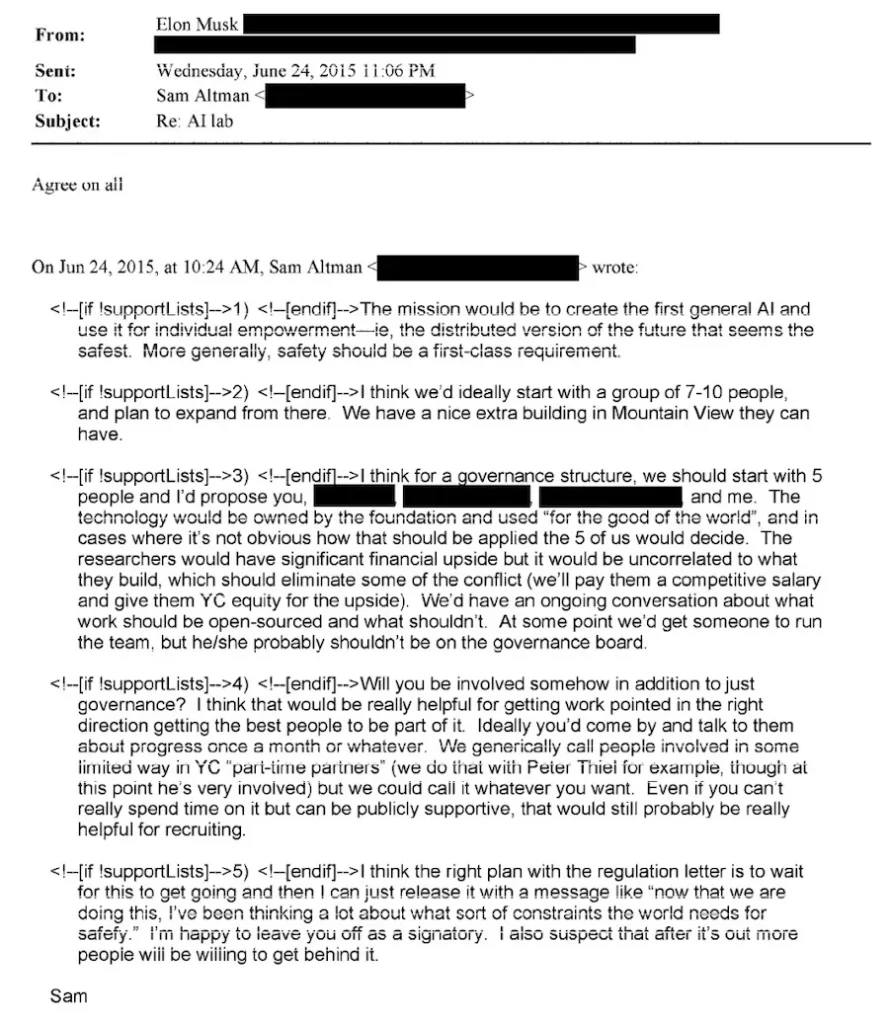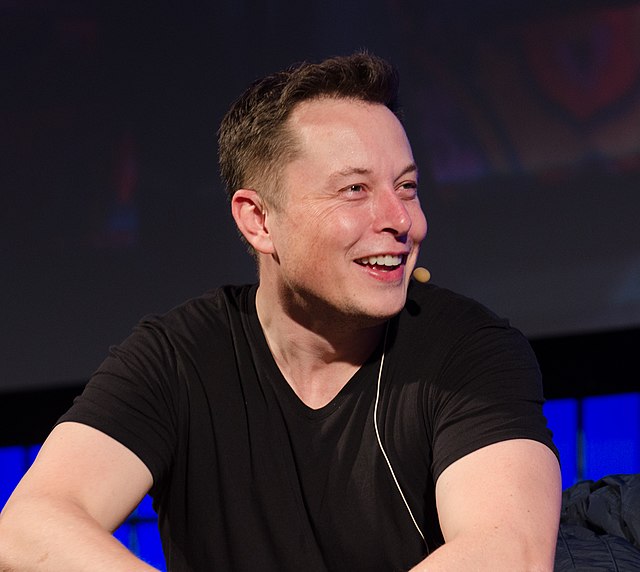Elon Musk, a co-founder of OpenAI, has filed a lawsuit against the organization and its key figures, accusing them of straying from their original mission. The lawsuit, filed in a San Francisco court, claims that OpenAI has abandoned its non-profit objectives and shifted towards a profit-driven, for-profit model.
Musk alleges that OpenAI co-founders Sam Altman and Greg Brockman convinced him to join and fund the organization in 2015 with the specific goal of developing AI for the benefit of humanity, not for personal gain. He claims the original agreement stipulated that OpenAI’s technology would be freely available to the public.
According to the lawsuit, OpenAI has undergone a significant shift since its inception. Instead of maintaining its non-profit status, the organization has partnered with Microsoft, securing a $13 billion investment. This partnership, according to Musk, has led OpenAI to prioritize commercializing its research and developing AI capabilities to maximize profits for Microsoft, rather than focusing on its original goals. He perceives this shift as a “stark betrayal” of the founding agreement.

The lawsuit also details Musk’s financial contributions and his principled refusal to accept a stake in OpenAI’s for-profit arm. He claims to have been the largest contributor to the organization during his involvement, donating over $44 million between 2016 and 2020.
Musk’s concerns about OpenAI’s direction are not new. He has publicly voiced his disapproval of the organization’s shift in priorities over the past year. Interestingly, Musk’s social network platform, X, launched Grok, a competitor to OpenAI’s ChatGPT, in 2023.
OpenAI has previously addressed some of Musk’s criticisms, with co-founder Altman defending the organization’s close ties with Microsoft and expressing confidence in their positive contribution to the world.
The lawsuit also highlights concerns surrounding the potential risks associated with OpenAI’s technology, particularly its GPT-4 language model. Musk argues that GPT-4 represents Artificial General Intelligence (AGI), a level of intelligence comparable to or exceeding human capabilities. He further alleges that OpenAI and Microsoft have inappropriately licensed GPT-4 despite previous agreements stating that OpenAI’s AGI development would be dedicated to humanity’s benefit.
Through this lawsuit, Musk seeks to compel OpenAI to return to its original non-profit mission and prevent them from monetizing technologies developed under that status for personal gain or partnerships like the one with Microsoft. Additionally, he requests the court to legally classify advanced models like GPT-4 as AGI, potentially impacting licensing agreements. Finally, the lawsuit seeks injunctions against OpenAI, along with a potential recovery of his donations if the court finds the organization has strayed from its public-minded mission.
The lawsuit also criticizes the leadership changes within OpenAI, specifically citing the appointment of a new board allegedly lacking expertise in AI governance and ethics. This claim further strengthens the narrative of OpenAI shifting its focus and priorities away from its original non-profit goals.
It remains to be seen how this lawsuit will unfold and what impact it might have on OpenAI’s future direction. This case has significant implications for the development and ethical considerations of AI technology, potentially influencing its trajectory and raising critical questions about the balance between profit and societal benefit in the field of AI research.

